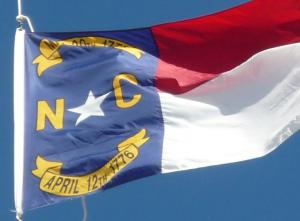North Carolina Declines to Assert Rate-Making Jurisdiction Over QFs

The North Carolina Utilities Commission has rejected an individual's request that it issue a declaratory order categorizing a renewable energy qualifying facility (QF) as a "public utility." Alleging that Duke Energy Carolinas (DEC) and Duke Energy Progress (DEP) were overpaying for the power supplies they purchase from QFs, the petitioner claimed that the only way to gain access to verifiable information on the "true cost of solar power" was for QFs to be classified as public utilities.
According to the individual, QFs are in the business of providing electricity to and for the public for compensation, bringing them under the definition of a public utility as set forth in state law. As such, he contended, QFs should be compelled to provide the commission with their cost-of-service data, which is the sole means of confirming the reasonableness of the prices paid by DEC and DEP for power procured from QFs.
The individual acknowledged that the two utilities are required under the federally promulgated Public Utility Regulatory Policies Act of 1978 (PURPA) to purchase the output from eligible small power production facilities at a price that reflects the utilities' avoided costs. However, he argued, because many of the resulting power purchase agreements (PPAs) are negotiated as long-term contracts, because the utilities' avoided costs are subject to change over such extended periods, and because the commission does not see any cost information from the QF itself, there is a potential under current market conditions for the Duke Energy companies to be paying as much as $1 billion more than they should be for solar power from QFs.
In response to the petitioner's claims, the commission said that neither federal nor state law treats QFs as public utilities or requires them to provide regulators with their costs of producing electricity. The commission elaborated that under both the federal and state regulatory constructs, public utilities are characterized by their provision of service directly to retail consumers. Thus, the commission said, inasmuch as QFs do not supply electricity to retail customers, they are not considered public utilities.
The commission related that QFs sell their generation to utilities, such as DEC and DEP, which in turn sell electricity to the retail public. As a result, the commission explained, QFs are actually involved in sales for resale, which makes them actors in the wholesale market, not the retail market. In light of the fact that their wholesale market status clearly sets them apart from retail utilities, the commission held that it is proper and lawful to exempt QFs from being designated public utilities.
As to the petitioner's PURPA arguments, the commission expounded that the intent behind PURPA was to overcome the historical reluctance of utilities to purchase power from nontraditional electric generation facilities. A secondary purpose was to reduce the financial burden on QFs from state and federal regulation.
The commission also highlighted the fact that PURPA mandates that QF prices be set in accordance with a utility's avoided cost, not the QF's cost of service to produce the power. In other words, the commission stated, the QF revenue entitlements authorized in avoided-cost proceedings are based on the costs incumbent electric utilities avoid by purchasing capacity and energy from QFs rather than the costs incurred by the QFs in generating such power.
Reiterating that because QFs are not participants in retail transactions, but only wholesale ones, the commission concluded that "regulatory circumstances" justify exempting QFs from public utility status. Re Col. Francis X. De Luca USMCR (RET), Docket No. SP-100, Sub 32, Aug. 22, 2017 (N.C.U.C.).



